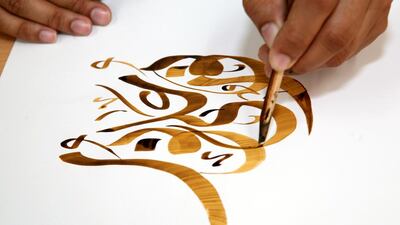Last week’s report on the level of Arabic spoken by school leavers, their proficiency in English and the dire suggestions that Arabic is turning into the country’s second language, comes as no surprise. Most people know that English is the language you need most of the time.
Growing up in Al Ain in the 1990s, we had to learn a few basics to survive, enough to chat to a taxi driver or barter for electronics in a shop.
When I first moved to Abu Dhabi, I recall the surprise of finding out just how little my western friends knew of their host country’s native language. Barely a week into the new school year, I got into a taxi with a friend and she said, in a loud English voice: “Can we please go to Abu Dhabi Mall?”
My level of Arabic stayed basic and colloquial until I left the UAE and moved to the UK for university, electing to study Arabic and linguistics. As with most language students we were disproportionately excited by the idea of our year abroad, which is a period of study spent in a country where your chosen language is spoken.
As our year out grew closer, Egypt and Syria, the usual destinations for students of Arabic, were thrown into turmoil and our university pulled out of two agreements with institutions in those countries. We were told our year of sun-drenched grammar lessons wouldn’t happen.
In the scramble to find a replacement, a friend and I settled on a language school in Morocco, where we spent a gorgeous year studying modern standard Arabic and trying to understand the local dialect.
It might seem strange that we would pick Morocco for studying Arabic. Those familiar with different Arabic dialects will know that Moroccan Arabic – with its Berber, French and Spanish additions – is far from modern standard.
What’s funny is that at no point in the whole process was the UAE ever a real consideration.
The local dialect in the Gulf is much closer to modern standard Arabic and the environment is much more conducive to studying the language, but the idea barely came up.
Had I had the choice, I would have come back to the UAE.
It’s the country I called home for most of my life and a large part of the reason I studied Arabic in the first place, but a number of factors led me to cross it off the list: the prevalence of English, the lack of notable Arabic language institutes and finally, the expense.
For a student, especially someone devoting the majority of their time to learning a new language, finances are usually the first priority and a country with cheap accommodation and generally low cost-of-living is eminently preferable.
Morocco, as far as my experience suggested, has become increasingly popular. It benefits from an influx of students from all over the world, all interested in the language, culture and well-being of the country.
The main problem facing Arabic in the UAE is the prevalence of English. Why bother trying to learn Arabic, giving up time and money to learn a difficult language you will have little chance to practise?
And it is a difficult language. If you want to confuse yourself get an Arabic speaker to explain all the grammatical rules that go with an “idaafa” structure.
But with the collapse of Damascus, in particular, there is a real vacuum left for students of Arabic. Were the UAE to promote and potentially subsidise language learning in the country, it would bring in foreigners interested in Arabic and culture. It would help the language flourish. Not only would it be good for students of Arabic but it would also provide an opportunity for non-Arabic speakers already in the country to learn it.
In the end, the problem is caused by the sheer number of non-Arabic speakers in the UAE. Giving some of them the tools to engage more with the culture they’re living in would give the language a fresh lease of life – it might also force a few of the lazier expatriates to step off the beach and into a classroom.
Problems with lacklustre teaching and parents speaking English at home are, of course, contributing factors, but until the UAE becomes a country where Arabic is a language spoken by most of the population, it will continue to be overshadowed by English. Why not start off by giving support to those of us who already want to learn the language? The rest will have to follow.
James Tennent is a freelance writer and student in London
On Twitter: @duckytennent

